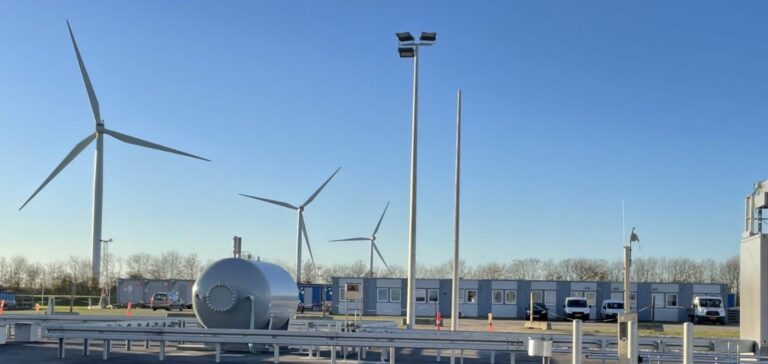The partnership between Copenhagen Infrastructure Partners (CIP) and Uniper is an ambitious initiative aimed at harnessing the potential of green hydrogen, a key resource for the future energy transition. This project, based on the development of the HØST PtX Esbjerg project on Denmark’s west coast, aims to produce up to 140,000 tonnes of green hydrogen annually. This volume ofhydrogen will be transported to Germany via a new pipeline, scheduled to be operational by the end of 2028. The pipeline is a collaborative project between Energinet, the Danish transmission system operator, and Gasunie Deutschland Transport Services. This direct link between Danish facilities and the German market symbolizes a crucial milestone in the integration of renewable energy into Europe’s energy infrastructure.
Economic and strategic implications
The agreement between CIP and Uniper is significant not only in terms of the volume of green hydrogen produced, but also for its impact on Europe’s energy markets. Holger Kreetz, COO at Uniper, comments: “HØST’s green hydrogen fits in perfectly with our long-term strategy, which includes achieving at least 1 GW of installed electrolysis capacity by 2030. Our projects, such as Green Wilhelmshaven in GermanyThis integration will directly benefit Uniper’s industrial customers, diversifying our sources of supply and increasing our competitiveness in the market. This partnership will enable Uniper to strengthen its green gas portfolio and offer its industrial customers contracts tailored to different flexibility needs and durations.
CIP’s role in expanding the Green Hydrogen market
CIP, recognized for its leadership in renewable energy infrastructure investments, sees this project as an opportunity to catalyze the transition to a low-carbon economy in Europe. Karsten Plauborg, Partner at CIP, comments: “With the massive production of green hydrogen that the HØST PtX Esbjerg project will enable, powered by wind energy from the North Sea, we have the capacity to significantly transform energy supply and support zero-emission targets. This pipeline between Denmark and Germany is a decisive step in bringing our hydrogen to key markets, increasing the accessibility and availability of sustainable energy solutions for German industries.”
Consequences for the Energy Sector and Ecological Transition
The HØST PtX Esbjerg project, supported by a well-planned hydrogen transport infrastructure, is laying the foundations for a new era in the energy sector. By aligning renewable energy production capacity with the demands of energy markets, this partnership between CIP and Uniper not only helps to reduce carbon emissions, but also encourages innovation in energy storage and distribution. This ensures smoother integration of renewable and intermittent energy sources, such as wind and solar power, into the European energy grid, which is essential for achieving the European Union’s climate targets. This partnership between CIP and Uniper for the development and marketing of green hydrogen represents a major step forward in the global effort to achieve a sustainable energy transition. By deploying advanced technologies and forging strategic links between renewable energy producers and consumer markets, this project highlights how strategic collaborations can accelerate decarbonization and promote






















